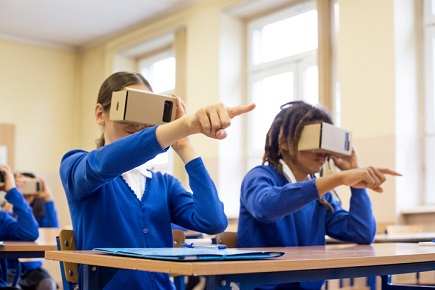
Schools across Asia are attempting to address the need for digital literacy skills but how can schools best approach students’ learning?
To engage students in subjects such as coding, which may come across as difficult for some, adopting diverse methods such as storytelling or board games can make classes easy and fun, according to research by Samsung Tomorrow Teachers.
The group is made up of school teachers in Korea who gathered to jointly develop new education models that can be applied in schools.
A group of education policymakers from Asia Pacific Economic Cooperation (APEC) member countries, which includes Singapore and Hong Kong, had recently attended a program offered by one of Samsung’s teachers – high school teacher Seo Seong-won.
Over a period of 10 days, Seo shared insights into engaging students in computing or software classes.
Seo told Korea Times that he stressed the importance of triggering curiosity in students. Only then will they recognise diverse problems and try to find solutions by themselves.
“Teachers should do more than simply convey knowledge,” Seo said. “I also always ponder how I can find topics that students will be interested in.”
The Tomorrow Teachers program helps him to in his pursuit of creating a conducive environment for students to learn by themselves, he added.
During the class, Seo gave participants a glimpse into how he successfully teaches software skills in schools. He re-enacted a real class setting with the use of a small robot.
Participants were made give commands to the robot with the use of software. They were noticeably excited as the robot moved around the class and immediately responded to their commands.
According to Seo, the response was mirrored software algorithm classes he has with his high school students, where they remain engaged and interested to learn.
Coding is a compulsory part of Korea’s school curriculum. Freshmen at middle and high schools get at least 34 hours of coding education a year.
In Singapore, programming is a crucial part of computing classes, which is available at the GCE ‘O’ and ‘A’ levels at a growing list of schools.


